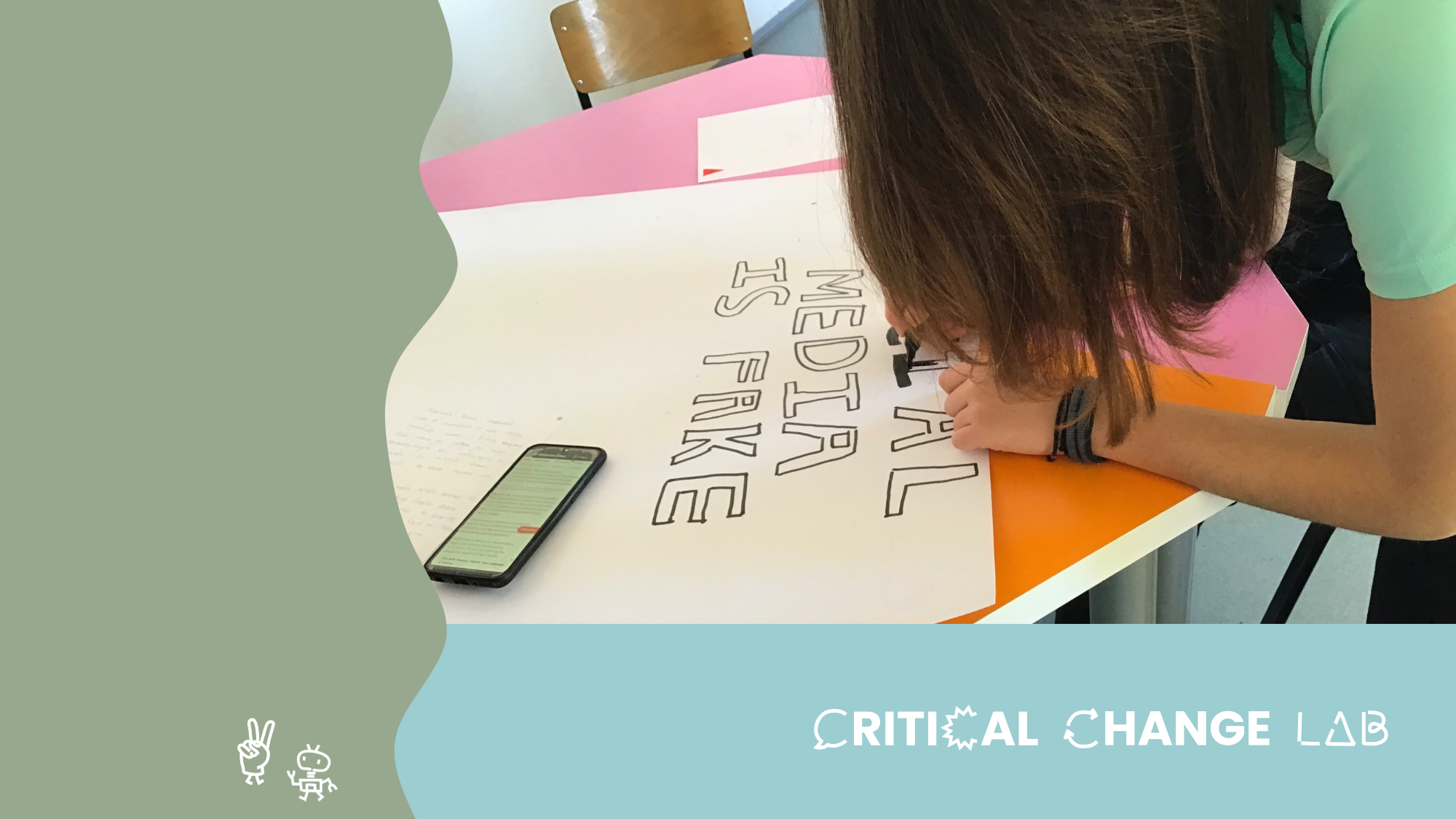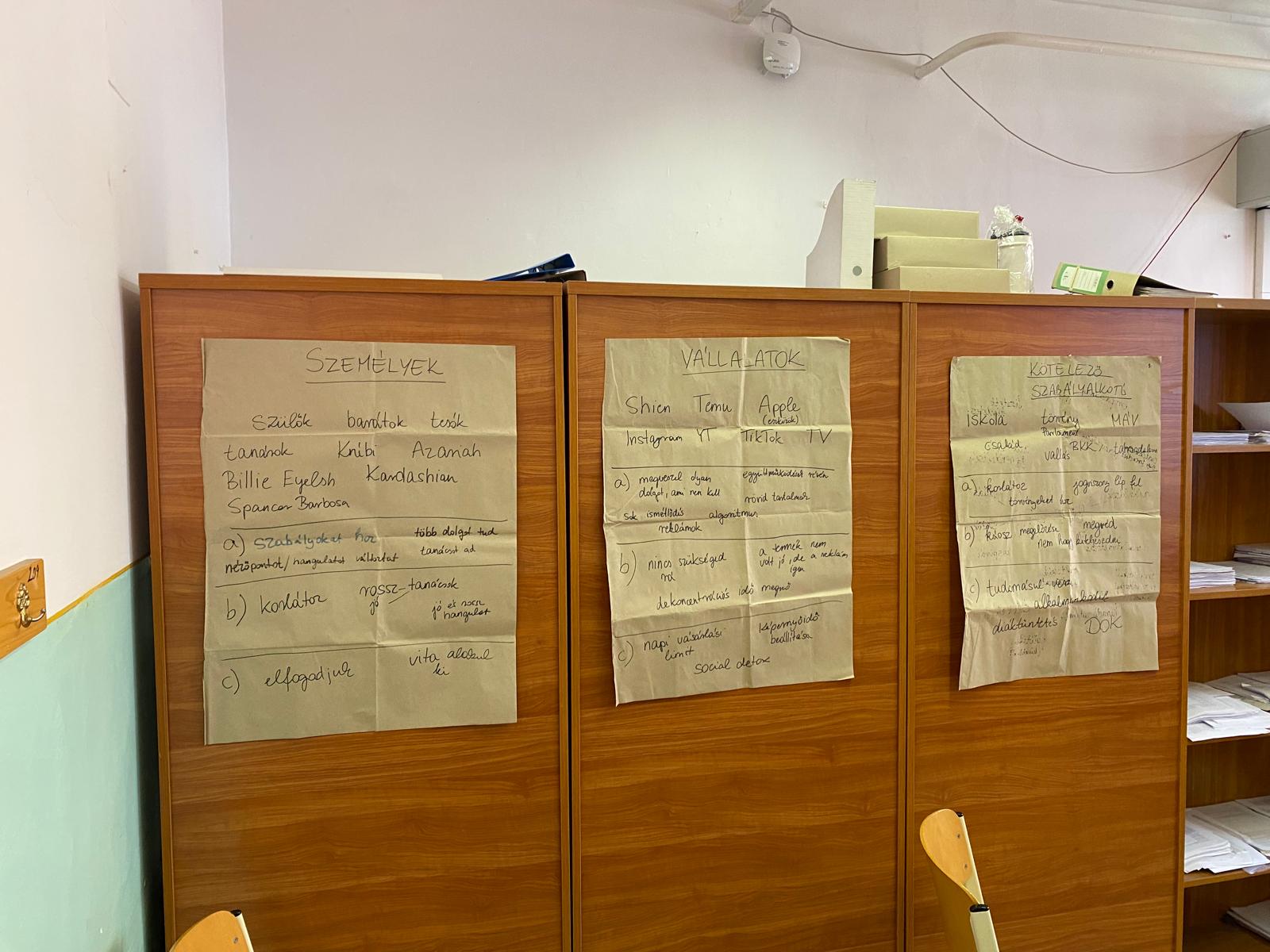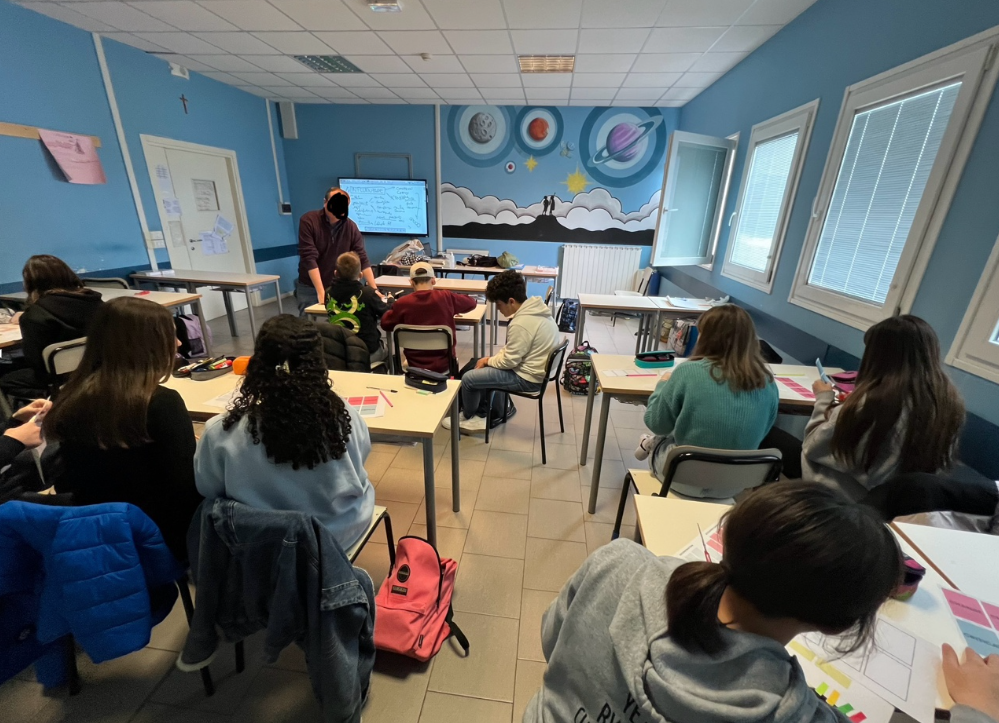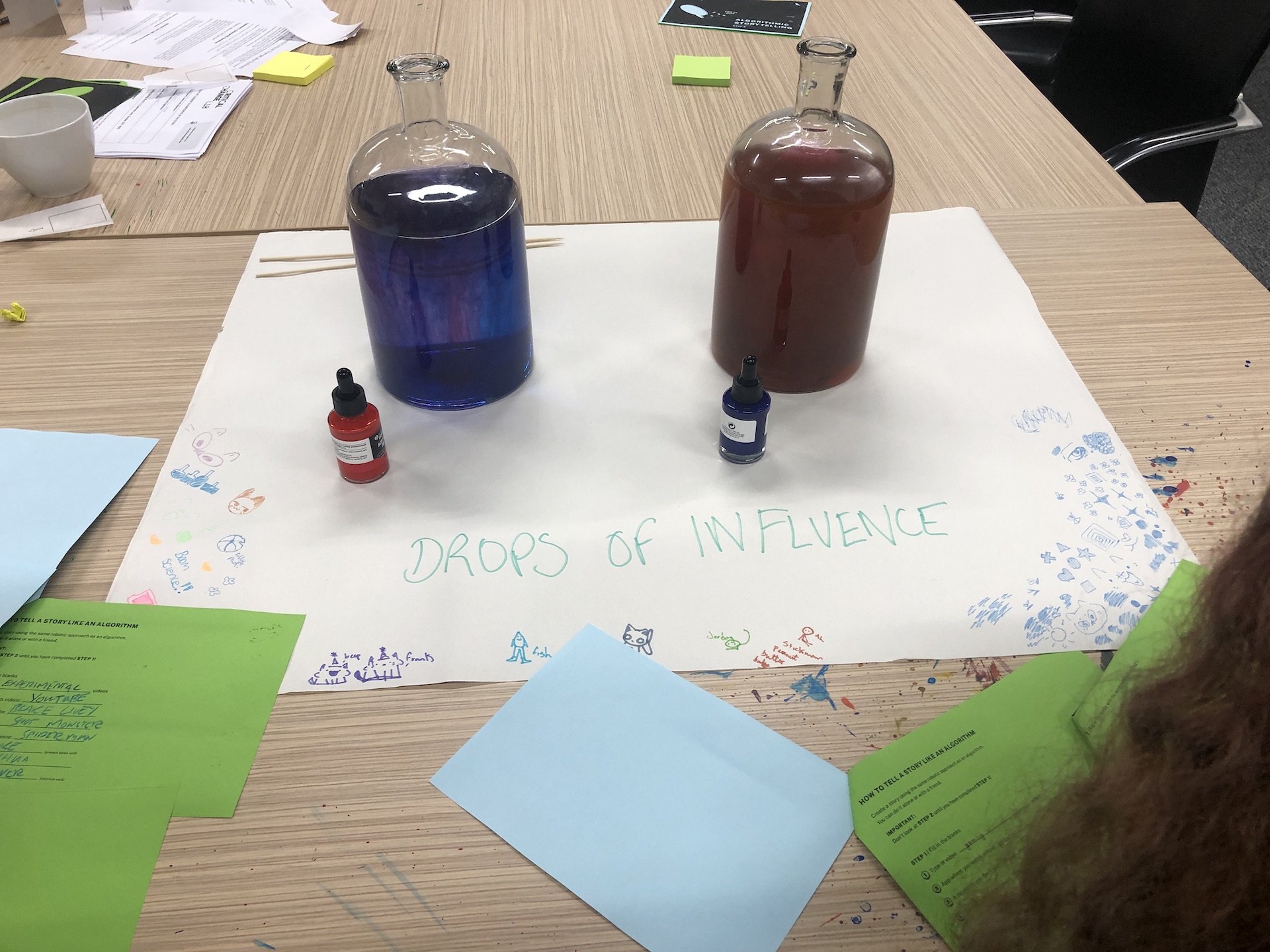Tactical Tech’s youth initiative, What the Future Wants seeks to put young people in the driving seat of their digital futures. Through visually engaging and captivating educational interventions and resources, Tactical Tech works with partners across the globe to foster open and free spaces where young people can have critical conversations on how technology impacts their daily lives and intersects with societal issues they care about. The creative and interactive Critical ChangeLab pedagogic methodology represents an opportunity for Tactical Tech and its partners to further explore how young people perceive and understand influence in the digital space and challenge them to imagine alternative ways digital influence could operate to facilitate rather than hinder their participation in everyday democracy.
What The Future Wants prioritises co-creation methods and produces interventions that provide teens with a sense of agency to shape their relationship with technology and mitigate the negative impacts of tech in society. Tactical Tech collaborates with local organisations such as schools, museums, cultural centres and civil society organisations working with youth, who understand the local context and priorities and play critical roles in their communities to bring these interventions to them. Following this approach and based on the Critical ChangeLab pedagogical model, Tactical Tech designed three participatory, youth-centred, interactive and playful workshop outlines on the topic of algorithms, digital influence and democratic participation. These outlines were created to be used, adapted, localised and translated by organisations working with youth.
A collaborative approach
After a Europe-wide open call for partnerships, Tactical Tech selected nine partners from nine countries to test this pedagogical methodology and run Critical ChangeLabs autonomously. These nine partners are a mix of public institutions like Ciência Viva (Portugal), Goethe Institut Skopje (North Macedonia), Centre for Teacher Education of the Faculty of Philosophy of the University of Belgrade (Serbia), La Tata Robotica (Italy), Platforma Uroboros (Czech Republic), NeON Digital Arts (Scotland), Televele (Hungary), Laboratorium Tuzla and Trik (Bosnia and Herzegovina), as well as researchers and experts working with different educational institutions like Dr Yuwei Lin (England). Most partners opt to run their Critical ChangeLab in cooperation with a formal education institution while others collaborated with youth centres and non-formal educational spaces. These labs allowed Tactical Tech to test the model with approximately 100 young people, ages 11 to 18 years old, from diverse cultural, religious, ethnic and socioeconomic backgrounds that otherwise would be very difficult to achieve if we only ran the labs ourselves. It also has helped to build a network of organisations and educators committed to providing teens with spaces for dialogue and to incentivize them to take action and foster digital environments that contribute to quality engagement in democratic processes.
Partners’ highlights
As part of the implementation of Critical ChangeLabs, an extensive evaluation process gathered feedback from partner organisations, highlighting the following experiences:
- There was an increase in participation levels and confidence of participants to act as sessions progressed, showing that Critical ChangeLab is an effective model to engage teens in conversations about democracy.
- What teens enjoyed the most was the interactivity and playfullness of the methods such as group discussions, posters creation and interactive activities since they provided space for learning, imagination and to challenge their own perceptions.
- Teens learned about how data and algorithms operate online and explored the different ways it can impact opinion formation and behaviour.
These initial insights point out that young people are open and willing to actively participate and shape the world they want to live in if provided with spaces, tools and agency that facilitate their participation and action.
Moving forward, we expect the outcomes from these external labs can inform our work and lead to the creation of more creative interventions. These can further support young people in their actions to shape the digital influence space in a way that best serves them and their communities, resulting in a better democratic environment.
Join our newsletter to continue to be updated on what we’re up to at #CriticalChangeLab. We’ll always keep it interesting, and only send you updates for as long as you want us to.




